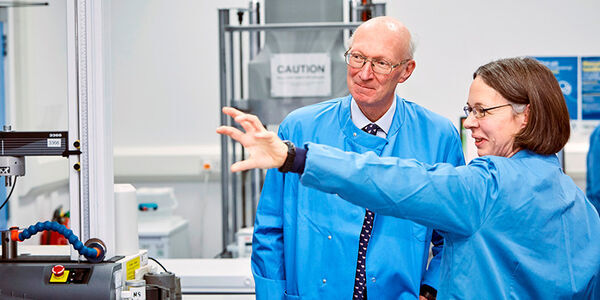
Using MRI to understand why some women go into early labour
Scientists are using imaging techniques usually used to map the brain to try and understand why some pregnant women miscarry or go into early labour.

Scientists are using imaging techniques usually used to map the brain to try and understand why some pregnant women miscarry or go into early labour.

The remaining undisturbed rainforests in Borneo, some of the world’s tallest and most carbon-dense, have been removing carbon dioxide from the atmosphere over the past 50 years, a new study shows.

River invertebrates react the same way to decreasing glacier cover wherever in the world they are, according to new University research.

Today our world is visually dominated by animals and plants, but this world would not have been possible without fungi, say University of Leeds scientists.

Leeds researchers are supporting a business' £1m project to develop new graphene-based water filters, to bring the technology closer to addressing world-wide water scarcity.

Professor Dame Jane Francis has been announced as the University’s new Chancellor.

An antibiotic candidate compound shelved in the 1970s in favour of more promising drugs could be worth a second look, new research has found.

A major investment in new musical instruments at the University of Leeds was today celebrated with the performance of a specially-composed piece of music.

A multi-million pound investment has secured the future of a joint University and NHS research centre specialising in rheumatology, musculoskeletal diseases and joint replacement.

Research into innovative medical technologies has been recognised in the Government’s Industrial Strategy Life Sciences Sector Deal.